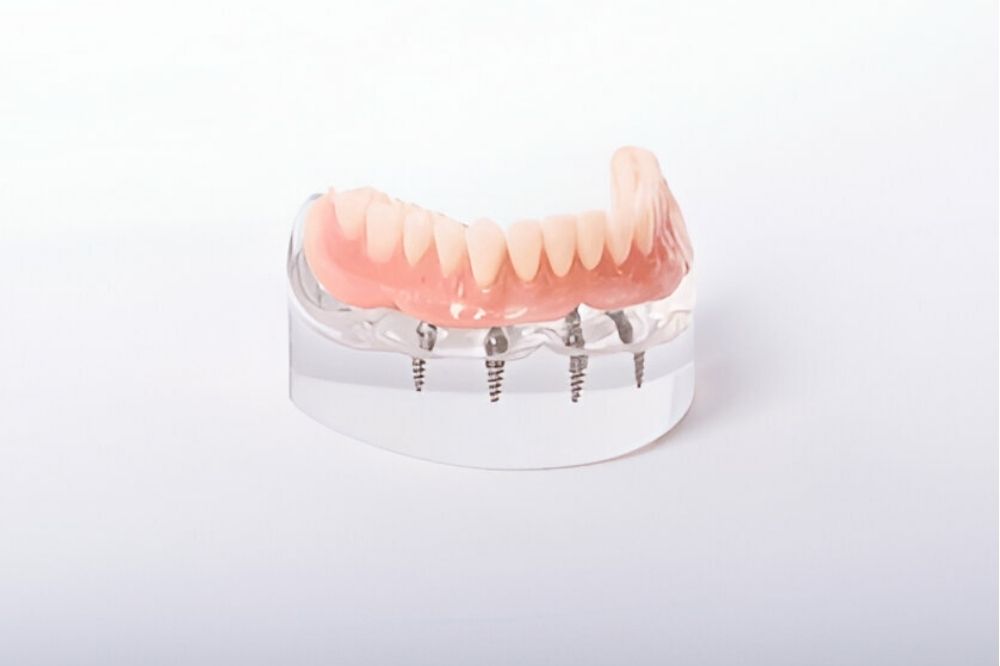Losing natural teeth not just alters one’s smile; it also alters the sound of one’s words and the flavour of food. If your favourite meals taste very different after you get dentures, then you aren’t alone.
While it can be a source of immense worry for many people, such changes in their sense of taste most often dwell on frustration. At least the good news is that there are solutions such as professionally fitted dentures in Prince Albert, which can not only enhance one’s confidence but also return one’s normal eating experience.
With suitable adjustments and guidance, one can savour meals once again and continue enjoying a good quality of life.
How Dentures Can Affect Your Taste Buds
Getting dentures is a big change, and usually, adjustment takes place within certain periods. Changes in taste are probably one of the most prominent complaints. The changes in taste that happen with dentures are mostly due to one or more of such factors:
The Coverage of Taste Buds
When you wear full dentures, the upper palate is covered with plastic; thus, taste buds may be affected. Since most of the sensing part for taste is the roof of your mouth, covering it up with a denture plate will make the food taste much less bright or even dull.
Modification of Saliva Flow
Dentures can alter the salivary flow in the mouth. The way saliva pools and dissipates is impacted by changes in the mouth’s shape. Since its flow is crucial to the release of flavour, its reduced flow will result in less appreciable tastes.
The Materials Used
The materials that are being used to produce dentures, like acrylic or metal, sometimes result in a bad taste whenever mixed with food. Gradually, it can affect the entire sensation of taste.
Taste Changes with Dentures: What Can You Do?
If you’ve noticed that your sense of taste has diminished after getting dentures, don’t worry; it’s possible to regain your full taste experience with a few changes. Belo are a few tips to implement:
Get Properly Fitted Dentures
One of the most effective ways to reduce the effects of dentures on your sense of taste is to make sure they fit properly. Ill-fitting dentures can cover too much of your mouth or be uncomfortable, which will only amplify the loss of taste. Visit a dentist near you to make sure your dentures are well-fitted and comfortable.
Adjust the Way You Eat
Try different textures and flavours to see if your taste buds are just getting used to the dentures. You might notice that certain flavours are more pronounced than others. Experiment with foods that have a strong taste, like citrus fruits or spices, to stimulate your taste buds.
Stay Hydrated
Adequate saliva production is key to tasting food. Drinking enough water will help stimulate saliva flow and can make food taste better. You can also try rinsing your mouth with water or a saline solution if your dentures have reduced saliva production.
How Dentures Affect Taste: Dealing with Neurocognitive Effects
Aside from affecting the way you taste, wearing dentures can have neurocognitive effects on your brain. This happens because of the feedback your mouth receives when eating and how it interacts with your brain’s response to taste. Here’s how:
Impact on Brain Signals
Taste is not just a matter of flavour; it’s a complex interaction between your tongue, taste buds, and brain. When dentures change how your tongue interacts with the roof of your mouth, it alters the signals sent to your brain, leading to potential changes in how flavours are perceived.
Psychological Impact
You can become frustrated or anxious if you can’t cope with the taste loss, especially when you’re eating. Your quality of life may suffer, and you may eat less or avoid certain foods entirely if you feel that you’re not enjoying them. Both physical and mental health may be affected by this.
Adapting to Dentures and Improving Taste
While there’s no overnight fix for taste changes with dentures, the good news is that there are several methods to adapt. Here’s a quick summary:
Regular Check-ups
Regular visits to your dentist near you will help ensure that your dentures fit well and don’t interfere with your taste buds. Dentists can adjust the fit, recommend special denture adhesives, and suggest oral care routines to keep your mouth healthy.
Relaxation Techniques for Stress
Dealing with the change of wearing dentures can sometimes cause stress. Relaxation techniques such as deep breathing, meditation, or light exercise can help calm the mind and reduce stress, which in turn can improve your eating habits and enjoyment.
Consult Your Dentist
If you’re still having trouble, it’s always best to consult a professional. A dental clinic near you can provide expert advice on how to make the adjustment period easier. They can recommend modifications or even provide treatment options that can help restore taste function more effectively.
Conclusion
Adapting to life with dentures might take time, but with the right care and understanding, you can get used to the changes in taste. As you explore solutions like dentures in Prince Albert, rest assured that you don’t have to let changes in taste limit your quality of life.
Comfortable Smiles Start With Expert Care
The key is to have well-fitting dentures, practice good oral hygiene, and work with a skilled dentist in Prince Albert to get the best results. Take your time and be patient with the process; you’ll soon be enjoying food with confidence again.
